In today’s competitive job market, standing out among other candidates is crucial. One often-overlooked yet impactful way to leave a positive impression is by sending a thoughtful thank you email after an interview. This small gesture can demonstrate professionalism, reinforce your interest in the position, and help you stay top-of-mind with hiring managers. Moreover, it shows that you are proactive and genuinely interested in the role.

Sending a thank you email is more than just a courteous act; it’s an essential part of professional etiquette. It reflects your appreciation for the interviewer’s time and consideration, and it showcases your communication skills and attention to detail. In many cases, a well-crafted thank you email can be the deciding factor that sets you apart from other equally qualified candidates. Additionally, it can reinforce the positive impression you made during the interview.
Table of Contents
Crafting the Perfect Thank You Email
Subject Line Tips
The subject line of your thank you email should be concise yet informative. It should clearly convey the purpose of your message while capturing the recipient’s attention. Phrases like “Thank You for the Interview” or “Grateful for the Opportunity” can be effective. Additionally, incorporating the job title or the company name can add a touch of personalization and relevance, making it easier for the recipient to identify the context of your message quickly. For example, a subject line like “Thank You for the Marketing Manager Interview” can immediately remind the interviewer of your specific interaction.
Personalizing Your Message
Personalization is key to making your thank you email after interview memorable. Address the interviewer by name and reference specific topics discussed during the interview. This shows that you were engaged and attentive, and it reinforces the connection you made. Mentioning a particular point of discussion or a shared interest can also demonstrate that you were actively listening and that you have a genuine interest in the role and the company. For instance, if you discussed a recent project the company undertook or a common professional interest, mentioning these in your email can create a stronger connection and make your email stand out.

Timing is Everything
When to Send Your Email
Timing is crucial when sending a thank you email. Ideally, you should send it within 24 hours of the interview. This timeframe ensures that your conversation is still fresh in the interviewer’s mind and demonstrates your enthusiasm for the role. Sending it promptly shows your professionalism and eagerness, giving you an edge over candidates who delay or overlook this important step. A prompt thank you email after interview also signals that you are organized and able to follow through quickly on important tasks.
Following Up Appropriately
If you haven’t heard back after sending your initial thank you email, a polite follow-up can be appropriate. Wait at least a week before sending a follow-up email to inquire about the status of your application. In your follow-up, reiterate your interest in the position and express your continued enthusiasm for the opportunity to join their team. This demonstrates persistence and a genuine desire to contribute to the company, without appearing overly eager or desperate. Ensure your follow-up is respectful and concise, such as: “I wanted to touch base regarding my application for the Marketing Manager position. I’m very excited about the opportunity and am eager to discuss how I can contribute to your team.”
Email Structure and Content
- Opening and Greeting
- Begin your email with a polite greeting, addressing the interviewer by their first name if you feel comfortable doing so. Express your gratitude for the opportunity to interview for the position.
- Expressing Gratitude
- Clearly state your appreciation for the interviewer’s time and for the chance to learn more about the company and the role. Highlight specific aspects of the interview that you found particularly engaging or informative.
- Recapping the Interview Highlights
- Briefly recap the key points of your interview discussion. This not only shows that you were paying attention but also reinforces your qualifications and how they align with the company’s needs.
- Reiterating Your Interest
- Reaffirm your enthusiasm for the position and the company. Explain why you believe you are a great fit for the role, and express your eagerness to contribute to the team’s success.
- Adding Value and Extra Information
- If there were any points you forgot to mention during the interview or additional information that could strengthen your candidacy, include them in your thank you email after interview. This could be a relevant project you worked on or a specific skill that aligns with the job requirements.
- Closing Strong
- End your email with a strong closing statement. Thank the interviewer again for their time and consideration, and express your anticipation for the next steps in the hiring process. Sign off with a professional closing, such as “Sincerely” or “Best regards,” followed by your name.
Common Mistakes to Avoid
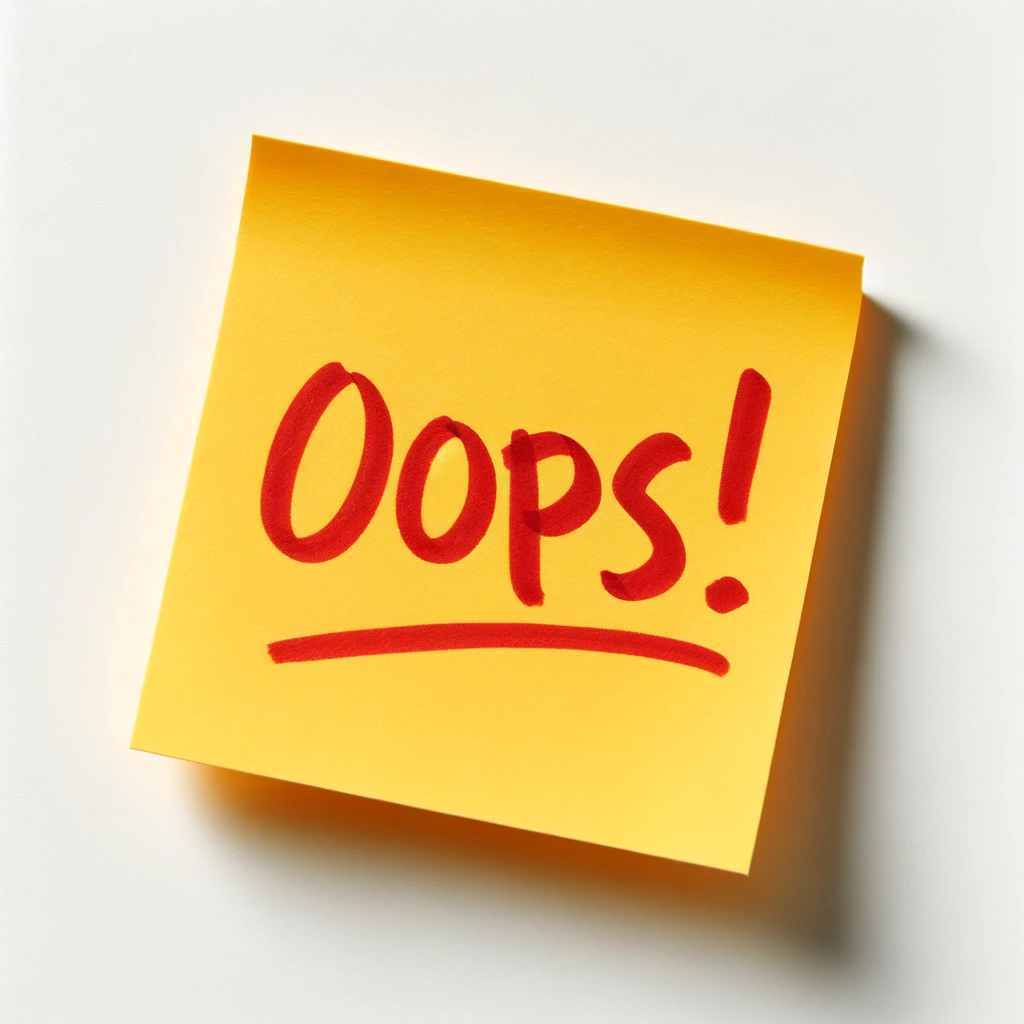
Being Too Generic
Avoid sending a generic thank you email after interview that could apply to any interviewer or job. Personalize your message to reflect your specific interview experience and the company you are applying to. Generic emails can come across as insincere and may fail to leave a memorable impression on the interviewer. To avoid this, reference particular moments from the interview, such as specific questions asked or topics discussed.
Mention the company’s unique projects, culture, or recent achievements that were highlighted during your conversation. This level of detail demonstrates that you are not only interested in the position but also invested in the company itself. It shows that you have done your homework and are genuinely excited about the prospect of joining their team.
Overly Lengthy Messages
Keep your thank you email concise and to the point. A lengthy email can be overwhelming and may cause the interviewer to miss important details. Brevity is key to maintaining the reader’s attention and ensuring your main points are communicated effectively. Aim to write a thank you email after interview that is clear and succinct, ideally between 200-300 words. Focus on expressing your gratitude, summarizing key points from the interview, and reiterating your interest in the role.
Avoid going off on tangents or including unnecessary information that does not directly support your candidacy. A well-structured, concise thank you email after interview is more likely to be read thoroughly and appreciated by the busy interviewer, thereby enhancing your chances of making a positive impact.
Using the Wrong Tone
Maintaining the appropriate tone in your thank you email is crucial. Using an overly casual tone can make you appear unprofessional and may not align with the company’s culture. A formal tone is generally best for corporate, finance, law, or other traditional industries, where professionalism and a respectful demeanor are paramount. In such cases, use polite and formal language, avoiding slang, emojis, or overly familiar phrases. This approach conveys your professionalism and respect for the interviewer’s time, ensuring your thank you email after interview leaves a positive, lasting impression that aligns with the formal nature of the hiring process.
Conversely, in less formal industries or smaller companies, such as startups, creative fields, or tech, a more casual tone might be acceptable and can help you come across as personable and approachable. However, even in these settings, it’s important to strike the right balance. Avoid being too casual or unprofessional. Tailor your language to the company’s culture, perhaps being friendly yet respectful. For instance, you might use a more relaxed greeting and include some informal expressions, but still avoid slang and maintain clarity and courtesy. This ensures you fit in with the company culture while still demonstrating professionalism.
Neglecting Proofreading
Neglecting to proofread your thank you email after interview can result in embarrassing mistakes that could undermine your professionalism. Spelling errors, grammatical mistakes, and typos can distract from your message and give the impression that you lack attention to detail. Before hitting send, take the time to carefully review your email for any errors. Reading it aloud can help you catch mistakes that you might overlook when reading silently. Consider using tools like Grammarly or asking a trusted friend or family member to review your email. A polished, error-free email reflects well on your communication skills and leaves a positive impression on the interviewer.
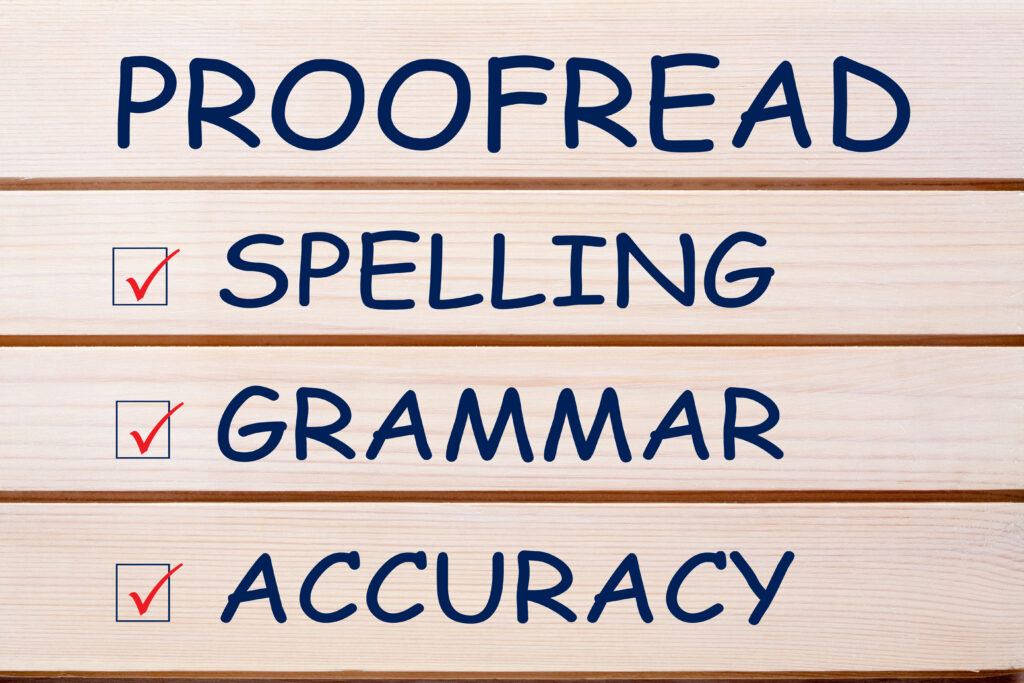
Failing to Follow Up
If you don’t hear back after sending your initial thank you email after interview, failing to follow up can be a missed opportunity. A polite follow-up email can reiterate your interest in the position and remind the interviewer of your qualifications. However, it’s important to strike the right balance between being persistent and being pushy. Wait at least a week before sending a follow-up email, and keep it brief and courteous. Reiterate your interest in the role and express your eagerness to hear about the next steps. This demonstrates your enthusiasm and commitment to the position without coming across as desperate or overly aggressive.
Not Including All Interviewers
If you were interviewed by multiple people, it’s important to send thank you emails after the interview to each interviewer individually. Failing to do so can make it seem like you are not appreciative of everyone’s time and effort. Tailor each email to reflect the specific conversation you had with each person, mentioning any unique points or insights they shared. This shows that you value each individual’s perspective and contributions, and it reinforces your strong communication skills. Taking the time to thank each interviewer separately demonstrates thoroughness and a high level of professionalism.
Overlooking the Subject Line
The subject line of your thank you email is the first thing the interviewer will see, so it should be clear and purposeful. A vague or poorly worded subject line can cause your email to be overlooked or misunderstood. Avoid generic subject lines like “Thank You” or “Follow-Up.” Instead, be specific and informative, such as “Thank You for the Marketing Manager Interview – [Your Name].” This helps ensure that your email is recognized as important and relevant, increasing the likelihood that it will be opened and read promptly.
Examples
Creating the perfect thank you email after interview can be greatly aided by using templates and examples tailored to different levels of formality and industry standards. For a more traditional and professional setting, a formal thank you email template is essential. This template should include sections for personalizing the message and addressing specific points discussed during the interview, ensuring that the email is both detailed and relevant to the conversation.
On the other hand, for industries that are less formal or for smaller companies, a casual thank you email template can be more appropriate. This template should maintain a friendly and approachable tone while still conveying professionalism and gratitude, making it suitable for creative fields, startups, or tech companies.
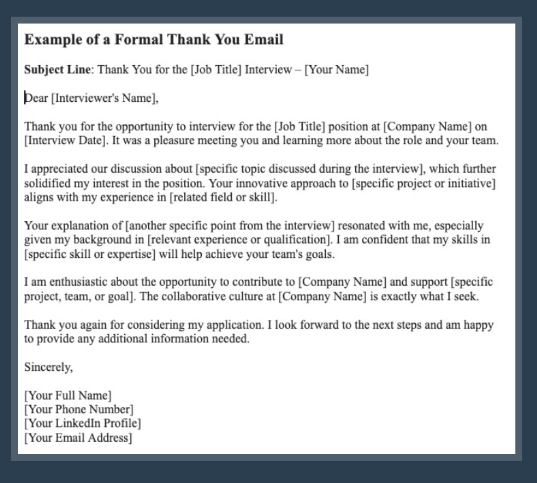
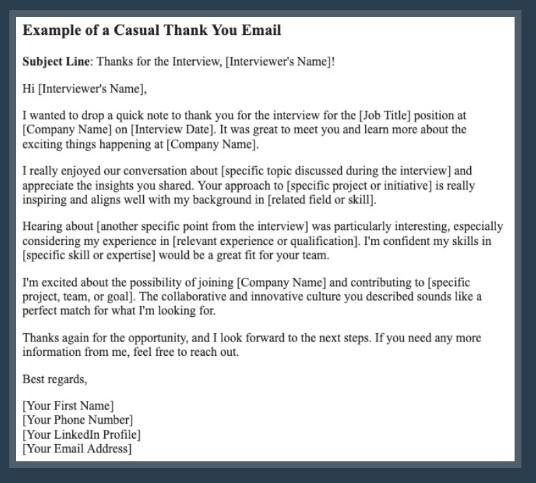
Interview Follow-Up Strategies
Connecting on LinkedIn
Connecting with your interviewer on LinkedIn is a strategic way to maintain a professional relationship and stay updated on company news. After the interview, send a personalized connection request, mentioning how much you enjoyed the conversation and expressing your continued interest in the position. This not only helps keep you in the interviewer’s mind but also expands your professional network. By staying connected, you can engage with the company’s posts, share relevant content, and remain visible to the hiring team, which can be advantageous if future opportunities arise.
Sending a Handwritten Note
Sending a handwritten thank you note as a follow-up to your email adds a personal and thoughtful touch that can set you apart from other candidates. In today’s digital age, a handwritten note can make a significant impression, showing that you are willing to go the extra mile. This gesture demonstrates sincerity and attention to detail, reflecting positively on your character. When crafting your note, briefly reiterate your gratitude for the opportunity, highlight a key point from your interview, and express your enthusiasm for the role. This added effort can leave a lasting positive impression on the interviewer.
Following Up if You Don’t Hear Back
If you haven’t heard back after your initial thank you email after interview, it’s important to follow up appropriately. Waiting at least a week before sending a follow-up email is a good rule of thumb. Your follow-up should be polite and concise, reiterating your interest in the position and inquiring about the status of your application. For instance, you might write, “I wanted to follow up on my application for the [Job Title] position. I remain very interested in this opportunity and am eager to contribute to your team. Any update on the hiring process would be greatly appreciated.”
This approach shows your persistence and continued enthusiasm without appearing overly aggressive. If you still do not receive a response, it may be appropriate to send one final follow-up after another week or two, but be mindful of the company’s hiring timeline and try not to appear too persistent.
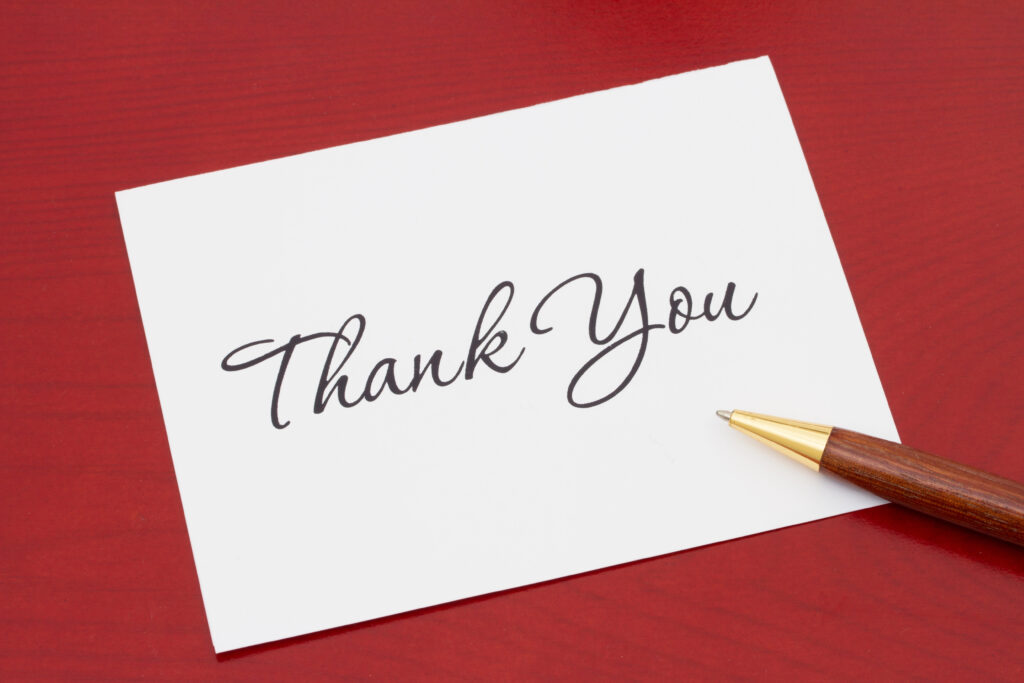
Your Top Questions Answered
- When is the Best Time to Send a Thank You Email?
- The best time to send a thank you email after interview is within 24 hours of the interview to ensure it’s fresh in the interviewer’s mind.
- How Long Should a Thank You Email Be?
- A thank you email after interview should be concise, ideally around 200-300 words, to ensure it is read and appreciated.
- Should You Send a Thank You Email After a Phone Interview?
- Yes, sending a thank you email after a phone interview is just as important as after an in-person interview.
- What if You Forgot to Send a Thank You Email After Interview?
- If you forgot to send a thank you email, it’s better to send one late than never. Apologize for the delay and express your gratitude.
- Can a Thank You Email Affect Your Hiring Chances?
- A well-crafted thank you email can positively impact your hiring chances by demonstrating professionalism and interest.
- Is It Okay to Follow Up More Than Once?
- Following up more than once is acceptable if done respectfully and with appropriate spacing between follow-ups.
Final Takeaways on Thank You Email After Interview
In today’s competitive job market, standing out among candidates is crucial, and one impactful way to do this is by sending a thoughtful thank you email after interview. This small gesture not only demonstrates professionalism and reinforces your interest in the position but also shows that you are proactive and genuinely invested in the role. Sending a thank you email is an essential part of professional etiquette, reflecting your appreciation for the interviewer’s time and consideration while showcasing your communication skills and attention to detail.
A well-crafted thank you email can be the deciding factor that sets you apart from other equally qualified candidates and can further reinforce the positive impression you made during the interview. Crafting the perfect thank you email after interview involves several key elements. The subject line should be concise yet informative, incorporating the job title or company name to capture the recipient’s attention and provide context. Personalizing the message by addressing the interviewer by name and referencing specific topics discussed during the interview shows engagement and attentiveness
Timing is also crucial; ideally, the thank you email after interview should be sent within 24 hours of the interview to demonstrate enthusiasm and professionalism. Additionally, if you don’t hear back after your initial email, a polite follow-up after a week is appropriate to reiterate your interest and inquire about the application status. Utilizing formal or casual tones appropriately based on the industry and ensuring the email is concise and error-free are also important strategies to enhance your chances of making a positive impact.
To secure an interview in the first place, your resume must stand out and capture the attention of potential employers. Having a well-written resume is crucial for this, as it serves as the first impression employers have of you. A clear, concise, and professional resume effectively highlights your skills, experiences, and qualifications, making you stand out among other applicants. Without a polished resume, even the most qualified candidates may be overlooked, missing out on valuable opportunities to showcase their potential in person, and taking away teh opportunity to write a thank you email after interview.
